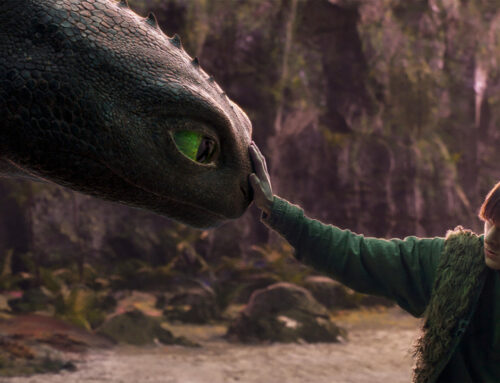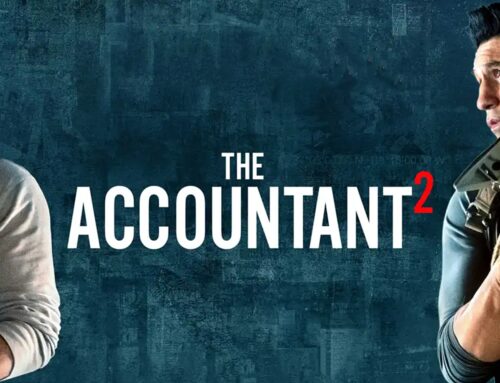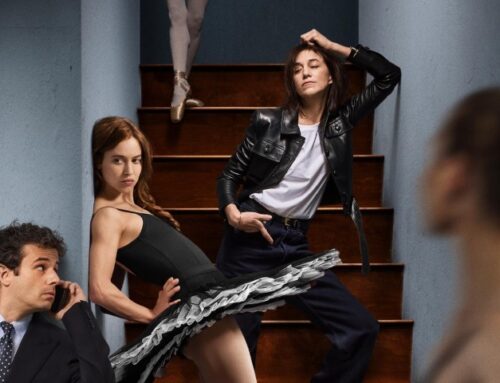“Power” was the theme at the movies released this rainy weekend and the following two films though different in style and content, found their way through the same terrain. Let’s begin with PROJECT POWER:
PROJECT POWER is the latest from Jamie Foxx who stars in this sci-fi action thriller about power– who has it, who wants it, who uses it and how. Here “power” is literally encapsulated in a pill that gives everyone a different superpower for five minutes, but one never knows what that power will be until they take the pill; it could make the user invisible, or it just might cause a body to explode. Foxx plays Art an ex-soldier who teams up with Joseph Gordon-Levitt as New Orleans police detective Frank who takes the drug to even the playing field against criminals, and Dominique Fishback as Robin a teen drug dealer. The three join forces to rescue Art’s daughter from the makers of the capsule that Robin peddles on the street to earn money for her mother who needs an operation. In a lumpy bit of exposition Robin shares that they have no health insurance; the movie sprinkles socially conscious, politically progressive messages among its special effects and action sequences which pit the three against street thugs and corporate drug lords.
And that brings me to the powers behind power- those who control and test the drug on the unsuspecting poor of New Orleans invoking Henrietta Lacks as justification. It’s a thorny issue and outside the scope of what a sci-fi action thriller usually thinks about. Henrietta Lacks is immortal in the annals of medical history because her cells were unwittingly harvested in the 1950’s after she was diagnosed with cervical cancer, but because of their remarkable resiliency her cell line lives on and continues to be used in global research resulting in scientific breakthroughs in medical research including cancer, HIV, vaccines, and genetics. That the villains here use Lacks’s uninformed consent as a rationale for using unwitting human guinea pigs to support a corporate criminal enterprise illuminates the ethical dilemma and raises further questions about knowledge, power, and who’s using whom and to what ends.
The film goes flat as an action thriller and needs to make more of its villains to heighten the dramatic tension, but in its attempt to hybridize the action with deeper themes of social awareness and political power, it is more subtly effective, and channels the cultural power shift currently in progress. When Foxx’s character says to Robin that “the power goes where it always goes– to the people who already have it” the movie makes its point clear. That Foxx and Gordon-Levitt who overcome initial mutual suspicion to become a unified black and white fighting force is not new to this genre, but Robin as the street smart teen who understands that everyone uses everyone, and yet never resorts to taking the drug herself, actually spins this thriller away from externalized to internalized power, power that is less susceptible to corruption, power that is less likely to backfire on the user who either self-destructs, or is corrupted by profiteering. What this film could use is more action, and better dialogue to support and pump up the thematic load it’s carrying. Check out PROJECT POWER just released on NETFLIX August 14, 2020.
And here’s another fascinating look at power, political power captured in a rousing and revelatory documentary called BOYS STATE which won the Grand Jury Prize at Sundance 2020. BOYS STATE takes an eye-opening look at an astonishing exercise that unfolds every year in Austin, Texas where approximately one thousand 17 and 18 year old high school senior boys gather, under the auspices of the American Legion, and over the span of one week– create a state government! Filmmakers Amanda McBaine and Jesse Moss take a close-up look at what amounts to a controlled, testosterone-fueled experiment in political intrigue and power. The filmmakers follow the boys from initial interviews and acceptance into the program, right through election night. In seven days, these boys have to form two parties– Nationalists and Federalists–identify a platform, elect party chairs, and run a campaign to elect leaders which culminates in the election of Governor. It’s “Lord of the Flies” meets “Survivor” with only political nerds on the island.
The film moves at breakneck speed as the camera pans and filmmakers grab wild sound, unguarded conversations, in-the-moment debate, behind the scenes strategizing, and zero in on the vivid personalities caught up in the fray. The boys are predominantly from conservative, military-inflected families, but the filmmakers capture many distinct personalities and points of view within this evolving milieu. There’s Reagan Republican Ben, straightforward, savvy, and a double amputee who knows how this challenge will play to an audience of young men yearning to identify with someone who hasn’t let a pair of prostheses slow him down. There’s Steven, a liberal son of Mexican immigrants who eloquently wears his heart on his sleeve and trusts his convictions enough to declare himself both pro-second amendment and pro-choice in front of a conservative audience. There’s Renee, laser-focused and blazingly-articulate party chair who stands firm in the face of a full frontal and perhaps racist attempt to impeach him on the first day. And there’s the gregarious Robert, a rah rah Republican who comes to realize that people may be one thing outside and another thing “on the inside”–himself included. “I didn’t think of this,” he says with endearing candor straight to camera. He gave me real hope for change in a world permeated by toxic masculinity.
The boys almost immediately come up against all the moral and ethical dilemmas politicians face. To be or not to be who you are? To spin or not to spin in order to win? And does winning mean compromising in order to get there? Or does compromising corrupt the very thing you were trying to win? One of the boys observes that “politicians shouldn’t lie, but this system made me see why they do.” Another observes, “A message of unity– as good as it sounds– is not winning anyone any elections.”
The film builds as election day bears down, picking up speed and intensity as the soundtrack becomes even more intrusive (that soundtrack is often too loud to hear all the interplay). Who will win? It’s a knuckle-biter and the results are revealed in a shattering conclusion. I was pretty invested, and the reactions of the participants are, remarkably, lessons in grace under pressure. There’s even a glimmer of hope that the next generation might be incentivized to outdo the current crop of politicians at consensus-building. With the real life election bearing down on us this November, BOYS STATE couldn’t be more timely, and reminded me of the wisdom of George Washington’s warnings about the danger opposing political parties pose to a democracy:
“However [political parties] may now and then answer popular ends, they are likely in the course of time and things, to become potent engines, by which cunning, ambitious, and unprincipled men will be enabled to subvert the power of the people and to usurp for themselves the reins of government, destroying afterwards the very engines which have lifted them to unjust dominion.”
We watch these kids figuring it out, out loud, and the timing couldn’t be more relevant. Politics in this deeply divided time of pandemic is the most exciting, nerve-wracking, soul-searching and consequential game on the planet, and this documentary lets us view our own two-party system in microcosm, up close and personal, mirroring our real life political “Lord of the Flies” as it plays itself out, revealing the flaws in the system.
DO NOT MISS “BOYS STATE” a documentary that does what all first rate films do– show us who we are.
Release Date: August 14, 2020 (Apple TV+)
Running Time: 109 minutes
Rating: PG-13






Leave A Comment
You must be logged in to post a comment.